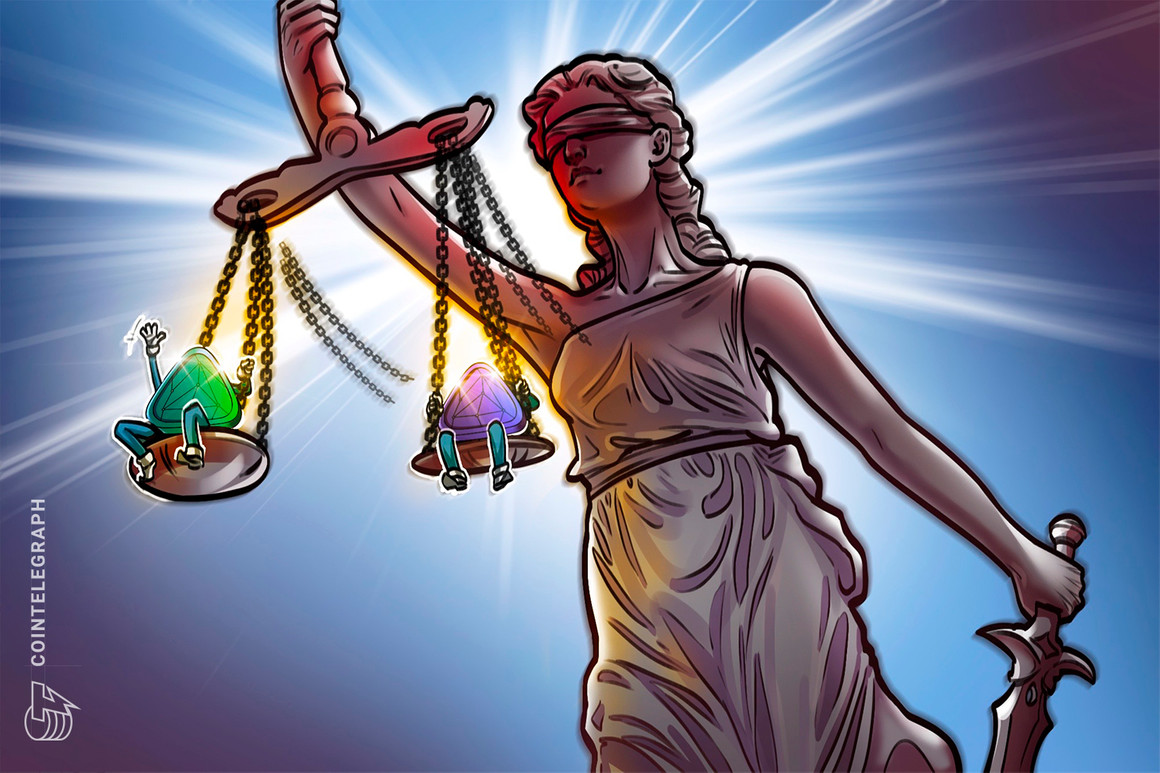The rapidly growing but loosely regulated nonfungible token (NFT) industry already touches many areas of human endeavor “from academia to entertainmen

The rapidly growing but loosely regulated nonfungible token (NFT) industry already touches many areas of human endeavor “from academia to entertainment to medicine, art, and beyond,” wrote recently two United States senators in a letter to the U.S. Patent and Trademark Office (USPTO) and the U.S. Copyright Office. The legislators were requesting a study to explain how this emerging technology fits into the world of intellectual property (IP) rights, including copyrights, trademarks and patents.
It is an area that some say is marked by ambiguity and inconsistent application of the law, and sometimes indifference from the courts. “Many feel it is time for Congress to step in and provide the predictability needed for innovation to flourish,” Michael Young, partner at Finnegan, Henderson, Farabow, Garrett & Dunner, LLP, told Cointelegraph.
The joint study that senators Patrick Leahy and Thom Tillis requested from the agencies, due June 2023, has as background a recent slew of high-profile lawsuits — Nike v. StockX, Hermès v. MetaBirkins and Miramax v. Quentin Tarantino — that raise some sticky questions about NFT creation, ownership and dissemination.
In one case, an NFT was minted — without permission — featuring sneakers with a Nike Swoosh. In another, NFT-related digital images were created of Hermès’ Birkin handbags, covered in fur, not leather, but also unlicensed. In a third, a famed movie director created NFTs from a film he directed but didn’t own.
A “wave of litigations has already begun for trademarks and copyrights, and courts are grappling with applying principles crafted long before the NFTs existed,” Anna Naydonov, partner and co-chair with Young of Finnegan’s Blockchain, NFTs, and Other Digital Assets industry group, told Cointelegraph.
“The lack of clarity surrounding patent subject matter eligibility for software remains a top concern for NFTs and other crypto-based innovations in both the U.S. and abroad,” said Young. Much the same could be said about trademark and copyright issues, especially the secondary liability of marketplaces like OpenSea, as well as metaverse virtual worlds and similar platforms where copyright infringement can occur, added Naydonov.
Still, not all agree that new legislation is needed. Some believe that government intervention in the U.S. and elsewhere would be not only superfluous but could stifle NFT adoption and innovation.
Is current law sufficient?
The real problem, as Gina Bibby, partner at Withers Bergman LLP, told Cointelegraph, could simply be “a lack of education about what NFT ownership really means.” A key thing that people seem to overlook is that:
“Absent a contractual agreement — e.g., smart contract — that expressly includes intellectual property (IP) rights, purchasing an NFT does not convey any copyright, patent or trademark rights or even ownership interests in the physical world asset on which the NFT is based.”
Are there, arguably, some false ideas out there about NFT ownership and puzzlement over who can do what?
Recent: The regulatory implications of India’s crypto transactions tax
“Yes,” Eric Goldman, associate dean for research and professor at Santa Clara University School of Law, told Cointelegraph. “In the offline world, the buyer of a painting or sculpture doesn’t automatically buy the associated copyrights.” That is unless the copyright is separately transferred, the artist or sculptor “can commercialize depictions of the art/sculpture and prevent the chattel owner from doing the same.” Even if the average consumer isn’t always aware of this, the U.S. Copyright Act expressly states:
“Ownership of a copyright, or of any of the exclusive rights under a copyright, is distinct from ownership of any material object in which the work is embodied.”
Goldman sees “a lot of erroneous claims” being made these days to the effect that “that owning one piece controls the other,” i.e., the NFT owner controls the IP or the IP owner controls the NFT. People often fail to recognize that, just as in the physical world, a piece of art and the item’s copyright are often owned by two different people, so too “an item of IP and its NFT can and often will be owned by two different people.”
Growing pains of a new industry?
But, every new technology brings with it novel questions, and maybe the current debate is just another example of technology moving faster than the law. Will regulators and lawmakers struggle to keep pace with changes?
“It’s the opposite,” Joshua Fairfield, a professor of law at Washington and Lee University, told Cointelegraph. “The law is already in place and has been for hundreds of years. Property is one of the oldest disciplines of law. There is no reason at all that someone cannot own an NFT like we own cars, houses, stocks, or the money in our bank accounts — after all, each of those property interests is also an entry in a database of who owns…
cointelegraph.com
